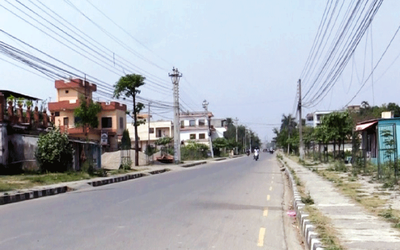"Old habits die hard", goes a famous saying. This has proved to be quite true in the new India of today. Its age old habit of corruption has refused to die. Two recent studies have indicated that India still remains as one of the most corrupt countries in the world falling in the same category in terms of its corruption rate with war affected countries like Afghanistan, Iraq and Sierra Leone.
A BBC poll showed that people in India were more concerned about corruption rather than terrorism. According to the Poll, 30% of Indians said that they discussed corruption while only 25% claimed to have discussed terrorism in the past month. In a similar poll conducted by Transparency International, more than 50% of the participants revealed that they had paid a bribe to some sort of authority last year.
It is clear that corruption is creating more terror than terrorism itself! For obvious reasons. In what is being called a 'season of scam', top politicians, high profile personalities and even senior media persons, have been found scams involved in corruption.
In a long list of scams this year, the first of such news to surface in the media was the Adarsh Housing Scam where Maharastra Chief Minister Ashok Chavan was accused of allocating flats to civilians along with two of his 'distant' relatives in Adarsh Housing Society, a society meant entirely for Kargil War heroes and the widows of the Kargil war soldiers. Chavan was made to ultimately quit and the CBI is still questioning his role in the controversy.
Next in line was the 2G spectrum case where the then Telecommunication Minister A.Raja was accused of giving 2G licenses to private telecom companies at a much lower rate than the market price. It has been accused that Raja, in 2008, provided licenses to a selected number of firms at the market price of 2001 which ultimately led to a $ 40 billion loss to the government. With pressures mounting from allcorners, the tainted minister finally quit the office although he has still been arguing that he was framed and is completely 'innocent'.
While the opposition, BJP, kept pressurizing the Government over the 2G spectrum case demanding the resignation of Raja, little did it did know that its own Chief Minister was going to be hit by a similar allegation. Soon after the 2G spectrum case, BJP's Karnataka Chief Minister B S Yedyurappa was accused of allotting Government land to his family members at throwaway prices. Yedyurappa even faced criticisms from members of his own party and 40 of the 106 MLAs demanded his resignation. However, unlike Raja, he proved to be quite lucky as despite pressure from his own party, he retained his post as the CM and even formed a panel to look into the case.Another land controversy featuring another Chief Minister, Mayawati, of Uttar Pradesh, surfaced a few days back when a news channel CNN IBN, claimed to have access to CBI reports stating that CM's brother was provided lands in posh sectors.Clearly, politicians in India can't seem to do enough to favor their families.
However, one incident related to high-level corruption which truly deserved wide media coverage but did not hog any limelight was the Niira Radia Tape Controversy. This one was truly unexpected and a lot of people were taken aback. The reason? Fingers were pointed at celebrity journalists such as Vir anghvi and Barkha Dutt. Sanghvi, a senior journalist with Hindustan Times and Barkha Dutt, the flamboyant journalist from NDTV, were found of having dubious conversations with a corporate lobbyist named Niira Radia, who also works as a PR Agent for Tata and Reliance companies. According to the taped phone calls between Radia, who was in close contact with the tainted minister A.Raja, and Dutt, the latter is seemed to playing the role of a messenger to the Congress Party. On the other hand, Sangvi, directly
asks Radia over the phone as to what she wants him to write. Although the story was big, none of the big newspaper or channel thought it “big” enough except the Outlook and Open magazines. According to Manu Joseph, editor of the Open magazine, " It was clear that most editors did not want to embarrass top guns of their fraternity like Vir Sanghvi and Barkha Dutt. But it was also clear that almost all big media houses had something to hide.
With corruption happening at this pace, it is not surprising that more Indians worry about the problem in more than any others. With new scams emerging every other day, India should be ready to face a huge challenge: tackling corruption involving not only politicians but also senior beaurocrats, journalists and businessmen. Failure to do so will badly dent India's aspiration of becoming a superpower. That will remain a mirage.
- TANAHU HYDROPOWER PROEJCT: A Significant Achievement
- Apr 15, 2024
- AMBASSADOR HANAN GODAR: Sharing Pain With A Nepali Family
- Mar 30, 2024
- VISIT OF KfW AND EIB TO NEPAL : Mission Matters
- Mar 25, 2024
- NEPAL BRITAIN SOCIETY: Pratima Pande's Leadership
- Mar 24, 2024
- NEPAL ARMY DAY: Time To Recall Glory
- Mar 15, 2024
















